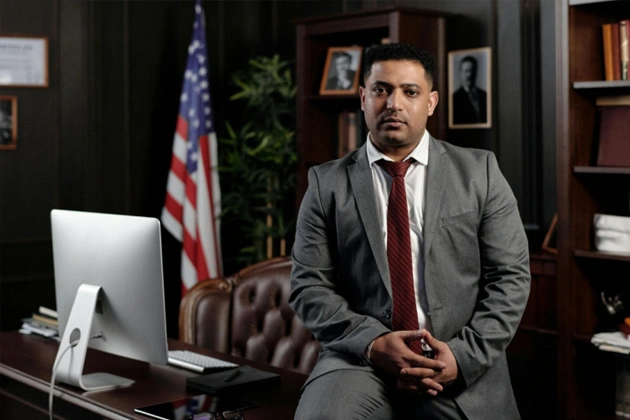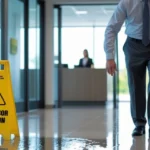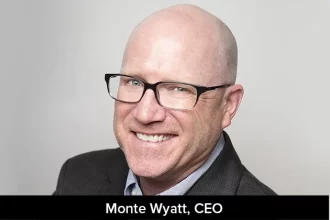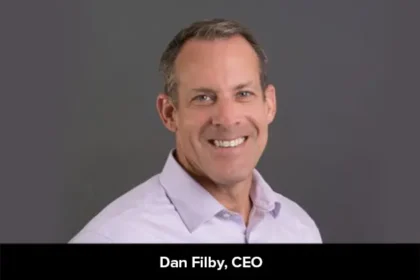Being arrested and facing criminal charges can be an incredibly frightening and overwhelming experience. It’s natural to feel uncertain about what comes next and worried about the potential consequences.
However, it’s important to remember that all hope isn’t lost. No matter the situation, a skilled criminal defense lawyer can provide the guidance, support, and legal expertise you need to navigate the complexities of the justice system and fight for the best possible outcome in your case.
Should You Hire an Attorney or Use a Public Defender?
When facing criminal charges, one of the most important decisions you’ll need to make is whether to hire a private attorney or rely on a public defender. Both options have their advantages and disadvantages, and understanding these can help you make the best choice for your situation.
Public Defenders: What You Need to Know
Public defenders are attorneys employed by the government to represent individuals who cannot afford to hire a private lawyer. They’re experienced in criminal law and handle a large number of cases daily. Because public defenders are paid by the state, their services come at no cost to you, making them an essential resource for those with limited financial means.
However, public defenders often face heavy caseloads, which can limit the amount of time and attention they can devote to each client. This doesn’t mean they aren’t skilled or dedicated, but the sheer volume of cases may affect how thoroughly they can prepare your defense. Additionally, some people worry about potential conflicts of interest or feel that public defenders might not be as motivated to fight aggressively for their clients compared to private attorneys.
Hiring a Private Attorney: Benefits and Considerations
On the other hand, hiring a Coral Gables criminal defense lawyer gives you the advantage of having a lawyer who can dedicate more time and resources specifically to your case. Private attorneys often have smaller caseloads, allowing them to investigate your case in greater detail, consult with experts, and develop a personalized defense strategy. They’re also typically more accessible, making it easier for you to communicate and stay informed throughout the process.
Private attorneys may specialize in certain types of criminal cases, which can be beneficial if your charges are complex or serious. Furthermore, because you’re paying for their services, private attorneys have a direct incentive to work diligently on your behalf.
That said, private legal representation can be expensive, and not everyone can afford the fees. It’s important to weigh the cost against the potential benefits, especially if the charges you face carry significant penalties.
Making the Right Choice
Ultimately, the decision between a public defender and a private attorney depends on your financial situation, the nature of your case, and your personal preferences. If you cannot afford a private lawyer, a public defender will still provide competent legal representation and is a vital part of the justice system. If you have the means, investing in a private attorney can offer you more personalized attention and potentially a stronger defense.
No matter which option you choose, the key is to secure legal representation as soon as possible. Early involvement of an experienced criminal defense lawyer can make a difference in the outcome of your case. Remember, your attorney is there to protect your rights and help you navigate this challenging time.
What Does an Attorney Do for You Throughout the Criminal Case Process?
When you’re facing criminal charges, having an experienced attorney by your side can make a difference in the outcome of your case. A criminal defense lawyer plays a crucial role throughout every stage of the criminal case process, providing guidance, protection, and advocacy to ensure your rights are upheld.
Initial Consultation and Case Evaluation
The attorney’s involvement begins with an initial consultation, where they listen to your side of the story, review the details of the charges against you, and assess the strength of the prosecution’s case. This early evaluation helps the attorney understand the facts, identify potential defenses, and advise you on the best course of action. They will also explain your rights and what you can expect moving forward.
Investigation and Evidence Gathering
Once hired, your attorney will conduct a thorough investigation of the case. This may include reviewing police reports, examining physical evidence, interviewing witnesses, and consulting with experts if necessary. The goal is to uncover any weaknesses in the prosecution’s case or evidence that may be inadmissible or unreliable. This step is critical in building a strong defense strategy tailored to your situation.
Negotiating with Prosecutors
In many cases, your attorney will engage in negotiations with the prosecutor to seek a favorable resolution, such as reduced charges or a plea bargain. Skilled lawyers understand the nuances of the local legal system and can leverage their experience to achieve outcomes that minimize the impact on your life. Plea negotiations can save you from the uncertainty and stress of a trial while still protecting your interests.
Representing You in Court
If your case proceeds to trial, your attorney will be your advocate in the courtroom. They will present your defense, cross-examine the prosecution’s witnesses, and challenge the evidence against you. A criminal defense lawyer knows the rules of evidence and courtroom procedure, which enables them to protect your rights and fight for the best possible verdict.
Advising on Sentencing and Appeals
If you’re convicted, your attorney can advise you on sentencing options and may advocate for leniency or alternative sentencing programs. In cases where errors occurred during the trial, your lawyer can also help you explore the possibility of an appeal to challenge the conviction or sentence.
Providing Support and Guidance
Beyond legal representation, your attorney serves as a trusted advisor during a difficult time. They help you understand the legal jargon, explain your options clearly, and support you emotionally as you navigate the complexities of the criminal justice system.










